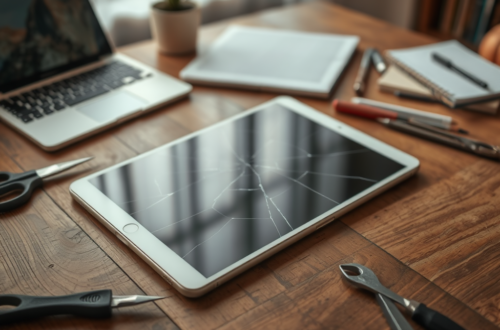When it comes to our daily routines, the battery life of our mobile phones is a critical aspect that can affect everything from business communications to personal social interactions. A common question many of us have is, “”How long should a phone battery last in a day?”” While there is no one-size-fits-all answer, we can arrive at a ballpark figure. Ideally, for new smartphones, the battery life will last through a full day of average use, which usually means about 12 to 24 hours between charges. In this article, we’ll delve into the nitty-gritty of battery life, providing insights into how you can optimize it, understand what affects it, and recognize when it might be time to replace it.
Understanding Phone Battery Basics
Battery health is the cornerstone of any discussion about battery life. Essentially, battery life refers to how long your phone’s battery lasts before needing a recharge. Most of the smartphones today are equipped with a lithium-ion battery, which is favored for its ability to charge quickly and hold a charge for a longer time compared to older battery types. The capacity of a battery, typically measured in milliampere-hours (mAh), determines how much charge it can hold, directly influencing how long your phone will last on a single charge.
Different types of phone batteries are available in the market, but the lithium-ion variety remains the most common in new mobile phones. Despite the advancements in battery technology, these batteries might not last as long as we want due to several factors, which include:
- Screen brightness and timeout settings: Brighter screens consume more power.
- Number of apps running in the background: Active background processes can drain the battery quickly.
The factors affecting battery lifespan and performance are not only limited to usage patterns. Constantly being connected to Wi-Fi or cellular data, using GPS services, and temperature extremes could also diminish battery levels faster. Keeping these variables in check is essential for maintaining good battery health.

Ideal Battery Life Expectations
When estimating how long a battery should last, we often look at the specifications provided by manufacturers. The average battery life for new smartphones could hover around 12 hours with moderate usage. However, with light use, the phone only lasts longer – possibly reaching close to a full 24-hour cycle. It’s important to note that ‘moderate usage’ varies per individual and can include activities such as browsing the web, checking emails, and social media interaction.
Your usage patterns have an enormous impact on how long the battery life lasts. For power users who frequently play games, stream videos, or use demanding apps, the battery could drain a lot faster, sometimes not even making it through half the day. Conversely, someone who uses their phone sparingly and for basic tasks might find their battery lasting a much longer time.
But it’s not only about usage; the role of battery capacity should not be overlooked. Battery capacity is like a reservoir of power; the larger it is, the longer it should last. Most new smartphones come with batteries ranging from 3000 to 5000 mAh, which, under normal conditions, should suffice for fulling charging and powering a phone through a typical day without requiring a recharge.
Maximizing Your Phone Battery Life
Preserving battery health is akin to maintaining a healthy lifestyle; it requires good habits and occasional check-ups. To ensure your battery remains in top condition for longer, here’s what you can do:
– Best practices for charging: Avoid letting your battery fully deplete before charging; doing so could shorten its lifespan.
– Maintaining battery health: The fastest charging method might not always be the best for your battery’s longevity. Sometimes, slower charging could be beneficial.
Implementing these tips could extend your battery life, but these aren’t the only methods to consider. Having a table to review can often help you remember the crucial ways to maintain your battery’s health:
| Tip | Effect on Battery Life |
|---|---|
| Reducing screen brightness | Increases time between charges by reducing power consumption |
| Closing unused apps | Prevents unnecessary background processing and saves energy |
| Enabling power-saving mode | Optimizes phone settings for energy efficiency by limiting functions |
More importantly, the impact of software updates and optimizations on battery life should not be underestimated. Manufacturers release updates that might include battery management enhancements, making your phone more energy-efficient. Keeping your phone updated also ensures that any known battery drain issues are addressed.
The pursuit of maximizing your phone battery life could also involve tweaking your habits. For instance, monitoring how often you check your phone can make a significant difference. Reducing unnecessary screen-on time by consolidating the checking of notifications and emails into fewer but longer sessions helps maintain higher battery levels for a longer period.
As phones become increasingly integral to our daily lives, the management of battery health not only prolongs the time between charges but could also prevent the premature need for a battery replacement. Balancing the demands we place on our phones with the practices that promote battery longevity is essential for continuous, hassle-free use throughout the day.

Signs Your Battery Needs Attention
Even with proper care and usage, battery health inevitably declines over time. But how can you tell if your battery health is degrading? Certain signs could signal that your phone’s battery might need a closer look or even a replacement. Symptoms of a deteriorating battery include a noticeable decrease in usage time after a full charge, unexpected shutdowns, and the phone taking longer to charge. You might observe that your device only lasts a few hours instead of the full day it used to, even with light use.
When to consider getting a new one often comes down to evaluating these symptoms and considering their impact on your daily life. If you find yourself tethered to a power outlet or your mobile phone becoming unreliable, it’s likely time for a change. However, some might choose to live with a less-than-ideal battery life due to financial reasons or because they plan to upgrade their phone soon.
If you decide that a replacement is necessary, you have several approaches to consider for battery replacement:
- Manufacturer or Authorized Service Provider: They can offer a warranty on the repair, ensuring quality and peace of mind.
- Third-Party Repair Shops: Often cheaper, but with varied reliability and the potential voiding of any existing warranty.
Conclusion
Throughout this discussion, we’ve touched upon multiple facets of the question, “”How many hours should a phone battery last in a day?”” It is evident that, while expectations can be set around the 12 to 24-hour mark for modern smartphones, actual battery life varies widely depending on usage patterns, phone settings, and battery health. There’s no universal answer, but there are ample opportunities to maximize your phone’s battery life through best practices and regular software updates.
Understanding the capacity of your lithium-ion battery, how it fits into your mobile phone’s needs, and how to maintain it can ensure you’re not caught off guard by a dead battery at a crucial moment. While it’s true that battery technology is advancing, so too are the demands we place on our devices, with high-resolution screens and powerful apps becoming standard. Developing battery-friendly habits and being able to recognize when your battery might need attention are key to keeping your mobile phone powering through the day efficiently.
Being proactive in preserving your phone’s battery health and knowing what to do when the battery doesn’t perform as well as it used to will ensure that your mobile experience is not only functional but also convenient. As cell phones continue to evolve, so will their power sources, and staying informed is the best way to navigate the complexities of battery management in our increasingly connected world.

Frequently Asked Questions
Q1: What is the average lifespan of a smartphone battery before it needs replacement?
A1: The average lifespan of a lithium-ion battery in a smartphone is typically around 2 to 3 years, or about 300 to 500 full charge cycles. After this period, you might notice a significant decline in battery performance, indicating it might be time for a replacement.
Q2: Can using my phone while charging harm the battery?
A2: Using your phone while it’s charging can increase the temperature of the battery, which may affect its lifespan over time. However, for most modern smartphones, using them while charging does not severely affect the battery health due to advancements in battery management systems.
Q3: Is it better to charge my phone battery to 100% or keep it between certain levels?
A3: It’s generally advised to keep your phone’s battery charge between 20% and 80% to promote longer battery life. Fulling charging to 100% or letting it drop to 0% regularly might stress the battery and decrease its overall lifespan.
Q4: How can I tell if my phone’s battery is starting to degrade?
A4: You can tell if your battery is degrading if it requires more frequent charging, loses charge much quicker than before, the phone shuts down unexpectedly, or if the device feels unusually hot during or after charging.
Q5: Are there specific settings that can help extend my phone’s battery life?
A5: Yes, most smartphones have battery saver modes that can be activated to extend the battery life. Additionally, reducing screen brightness, turning off unnecessary features such as Bluetooth and GPS when not in use, and limiting background app refresh can also help save battery.





